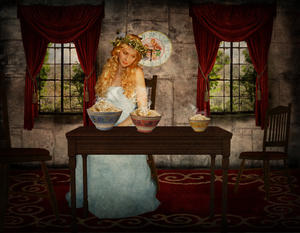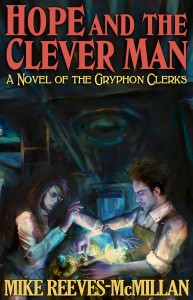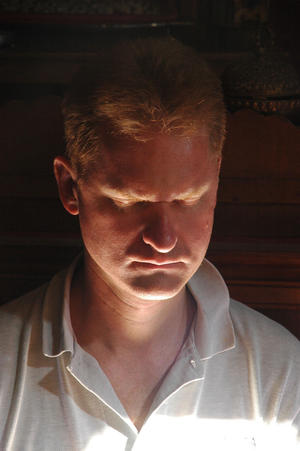I review a lot of books. For a few months now, I’ve been one of the reviewers on the Kindle Book Review (KBR) team, and that gets me direct requests from indie authors who want a review. (If that’s you, you should first read my review policy.) Edited to note: I’m not accepting new requests for a while.
I have very particular tastes in fiction, and as a former professional editor I’m also highly conscious of quality, so I end up turning down a very high proportion of the review requests that come to me. It’s probably 80-90%. At the same time, I’m enthusiastic about the indie revolution and I want to encourage people as much as possible, so I try to be helpful even when I’m turning someone down.
KBR has what I consider a sensible policy: no book review under 3 stars is posted under their name. They’re not in the business of running books down. My particular implementation of that policy is that if I don’t think I’m going to like the book, and preferably love the book, I won’t review it. Apart from the 3-star rule, why would I voluntarily spend my time reading something I dislike?
This post is about why I turn people’s books down and, more importantly, how. I’ve written a number of these rejection emails now, and I thought other reviewers might be interested to see the kinds of things I say.

- striatic / Foter.com / CC BY
There are a number of what in the project management world used to be called “QA gates” that a book needs to get through before I’ll review it – or before I’ll buy it, if it’s one I’ve found for myself. The first is the pitch or blurb (I’ll refer to it as the pitch from here on in, regardless of whether I mean what someone emails me or what’s on the Amazon page of a book I’m buying for myself). Some people pitch me stuff I don’t read, like nonfiction, or epic fantasy, or dark fantasy, or conspiracy-theory-based thrillers (a lot of those, for some reason). I turn these down quickly, with minimal comment, usually reminding them that my Kindle Book Review profile says that I don’t review what they’ve just pitched me. Pro tip: read the instructions.
Some people pitch me stuff I do read, but they do it so poorly that I don’t want to read their version of it. Either their pitch contains significant editing issues, or it’s rambling, or it just sounds like they’ve taken a stencil from their favourite book and sprayed some paint through it, producing a bad imitation.
If it’s a book I’ve found for myself, I pass at that point and move on. If it’s being pitched to me by email, I sometimes give them some benefit of the doubt and at least take a look at the sample, either by downloading it to my Kindle or just looking at it on Amazon. After all, a weak blurb can, theoretically, have a good book lurking behind it.
In my experience so far, though, this theory isn’t borne out in practice, and if the pitch is badly written the book is no better.
Here’s a rejection I wrote yesterday. Although I mainly mention the preview here, it was based on a combination of the pitch and the preview.
Thanks for the request, [author]. I’ve had a quick look at the preview on Amazon and it doesn’t really grab me. The punctuation is very rough, which I always find distracting. I can forgive that if it’s an unusually compelling concept, or if there’s a great hook in the first couple of pages, or if the characters are out of the ordinary, or if it’s a story I’ve never seen done before, but as far as I could see yours doesn’t have any of those factors going for it.
I make it a policy to only review books I think I can love, and I can’t see myself loving this one, sorry. Hope you find other reviewers that it works better for.
Sometimes I have doubts about the pitch, because it sounds like it isn’t something I like, but I give the sample a bit more of a look just in case. Here’s another one I wrote yesterday:
Sorry, [author], but I’m not loving it. It’s well-written, for which I commend you, but it’s just not a book that I would pick up to read if you hadn’t requested a review for it. The broken-down, alienated protagonist and the devastated world that’s the setting are putting me off.
I know that’s just your setup for why the story’s issue is compelling, but I’m afraid I just can’t muster up enough enthusiasm to persist. I emphasize that this is a matter of my personal taste, and a lot of people will love it for exactly the reasons that I don’t.
Good luck in finding other reviewers, I’m sure they’ll give it a good review for all its many strengths.
I always try to distinguish between “this book has issues” and “this is not the book for me”.
(I do feel a bit guilty sometimes about the “hope you find another reviewer” line, because I’ve submitted my own book for review to all three of the other spec-fic reviewers on KBR, one in March, one in April and one in May, and as at nearly the end of June none of them have replied, even to say “no”. Nevertheless, I keep saying it.)
Another:
Sorry, doesn’t sound like one for me. Post-financial-collapse sounds close to post-apocalyptic to me, which as noted in my profile is something I don’t read. The blurb gives the impression of an overly complex story told in a hyped-up manner, and there are hints of conspiracy theory as well, which I need to have noted on my profile as something else I don’t read. I glanced at the first few pages, and they read like the blurb, though at least they look like they’ve been edited (rare enough in indie books to be worth remarking on).
Not for me, but certainly for someone. All the best with finding that right reviewer.
And another:
I took a look at your sample. While it’s well enough written, it’s not really my kind of book. I don’t read military or action-centred books as much as I used to. I don’t think I’d love it, so I’m probably not the reviewer you want. I hope you find someone who enjoys that subgenre more.
One of my pet peeves is when an indie author tells me in the blurb (which we all know is written by the author) how wonderful the book is and what my reaction to it is supposed to be. Here’s my response to one that said that his book “attempts to punch the reader in the gut with laughter, smack them on the head with passion and kick them in the shins with character development” (he did at least say it was an attempt).
Well, I’ve had a first look. I’m afraid I remain unpunched, unsmacked and unkicked.
It’s not actually bad, though I’d seriously advise you to move your intro to the end and fix the homonym error (“you’re” for “your”). But it hasn’t hooked me, and I can’t see that changing. I don’t have an American sense of humour, is probably the problem.
I’d suggest that another reviewer would probably be more likely to give you a good review.
Here’s another blurb-boaster:
To be honest, your blurb puts me off a little. That’s mainly because you’re using evaluative words, like “mind-bending” and “unimaginable”, which sound like hype (and like things I’d rather decide for myself than be told by the author). I also tend to assess a writer’s style by their blurb, and that formal, adjective-heavy style doesn’t appeal to me. It leads me to suspect that I may get a lot of telling rather than showing in the story.
I want to give you a fair chance, though, so I will download your sample from Amazon, and if I enjoy it enough that I want to read the rest I will let you know. If I don’t, I will tell you why, as helpfully as I can.
I’ve had a lot of requests lately, so you’re currently fifth in the queue. That means I may not get to your book for a while, particularly since I’m going overseas for a couple of weeks soon. I’ll get back to you as soon as I can, though.
And the follow-up:
I took a look at the sample last night, and I’m afraid I couldn’t get into it, for pretty much the reason I expected. It’s written in a very formal style, which seems like an attempt at a “high” style. It’s very literate, but you don’t quite pull it off. For example, the first character to speak is very slangy, which is clanging in the midst of all that formality, and then you use a phrase like “be him” when it should be “be he”.
The other problem is that as far as I got (about 15% of the way through the sample) there was no actual action. It was all the character contemplating things, mostly in vague abstract terms, and running through the backstory in his head. I didn’t see a problem he was trying to solve, and for me, at least, I need to see that very early on in the story if it’s going to hold my attention. There was nothing to hold onto.
You’ve had a number of positive reviews, so clearly this book is working for people, but I’m afraid it didn’t work for me. I hope that’s helpful to you in some way, and I encourage you to look for another KBR reviewer.
I often let people know that I have hesitations from the outset:
I will download the sample, but I have to say my initial response is hesitant. That’s mainly because I have difficulty suspending my disbelief of your premise (a stimulus that we’ve never encountered before that makes us helplessly abandon all rationality). I’ll read the sample, though, and see how that goes, and if I want to continue to read I’ll be in touch.
If you’d rather look for another KBR reviewer in the meantime who might be able to start sooner or might have a more enthusiastic response to the premise, please feel free. Let me know if you find someone, though, so we don’t double up.
To which my later follow-up was:
I’ve read the sample, and I’m afraid it didn’t grab me enough to overlook my problems with the premise. Sorry about that, and I hope you can find a reviewer who loves it.
Another example of the two-stage rejection. This one sounded different enough that I thought it might be worth making an exception to my usual reading taste:
I don’t usually go for dark, and I never read zombie novels, but I’ll take a look at the sample and if it’s unusually good I’ll write a review. I’ll let you know either way.
The follow-up:
I’ve had a read, and I’m afraid it’s not for me. Before I even got to the zombies, the staccato style, with very few commas, and a homonym error in the third sentence put me off.
I suggest you approach another KBR reviewer.
By the way, the responses I’ve had to these emails fall into two groups. Some people don’t reply at all, which I think is a good choice. Others just thank me for the feedback, apparently genuinely, which is also a good choice. I’ve not, so far, had anyone get offended or confrontational.
Here’s my response to someone who was writing in English, although it wasn’t her first language:
I’m going to say no to reviewing these. I downloaded the samples, and although there were a few errors of English usage, I understand those, and they aren’t the problem. The problem is the run-on sentences.
If you’re not familiar with that term, a run-on sentence means that it runs on from one thought to another without much (or any) punctuation. What should be multiple sentences ends up as one, and the effect is that the reader has nowhere to take a mental breath and has to work harder on comprehension.
All of that means that I would probably find I had to force myself through the book, and that doesn’t lead to a good review. I’d suggest that you approach one of the other KBR reviewers instead.
I hope this is not too disappointing for you. I know how hard it is to get reviews.
Last example. Here’s someone I gave detailed advice to, stressing what he was doing well.
Well, I had a read of the opening chapters. I have some suggestions. I hope you take these in the spirit in which they’re meant.
Firstly, the good. You can spell and punctuate, and the words you use mean what you use them to mean. That puts you way ahead of the average indie author right out of the gate. Your premise is interesting, and your character concepts seems sound.
The problem is that, in my opinion (and others may think differently), your writing needs a lot of tightening. Less would be far more. Your sentences are often very long, and they ramble. Not only that, but there’s a lot of scene-setting detail that I suspect isn’t important to the plot.
You open with a prologue, which some people are opposed to. There’s another school of thought, though, that says that if you aren’t going to get to the action and the conflict right away, having a prologue that sets up the action and the conflict is a good way to hook the reader.
The thing is, I think you should get to the action and the conflict right away, or at least as soon as possible. What hooks me into a book is that I see a character with a problem who’s trying to solve it. We see that in the prologue, but in the first few chapters of the book we see a character who goes surfing, teaches a class, establishes his gamer cred, has a very long conversation with an old friend about how they’re both broke and having relationship problems, and then we get a long chunk of backstory about how they became friends, and it starts to go into a blow-by-blow on the friend’s academic history, and at that point I lost interest.
What I’d suggest is that you cut to the chase and drop in just as much backstory as you need, when you need it. I suspect, given your premise, that the exact details of how long it took to get the divorce and which court granted it and so forth aren’t essential plot points. I further suspect that the important parts are that one character is a military historian who can use his knowledge to lead, and the other is an ex-cop, and they’re old friends, and they don’t have current relationships or jobs that they love and would find hard to leave. Now, I may be wrong. There may be other things in there that are important. But if so, I’d suggest mentioning them when they’re important, and not in a long introduction.
You could do something like this: When the big reveal happens, and the protagonist has to decide whether to go off Earth and help in the battle, he thinks to himself: “What is there for me here anyway? By the time my adjunct professor salary pays off my student loans, there’ll be a colony on Mars. My divorce is final as of a month ago. I don’t even like my job.” And then he says, “All right, I’m in.”
I do think this book has a lot of promise, but at the moment, for me, the interesting bits are buried behind a pile of unimportant detail. The rule of thumb is that you can usually cut about 25% without losing anything essential, and I’d say that’s a rule you’d do well to follow.
You don’t have to take my advice, of course. I’m just some guy on the Internet. If you do decide to take my advice, though, I would like another chance to review the book, because I think it has potential.
Although this author replied and said he basically agreed, he also said he wasn’t planning to follow the advice since he was moving on to the rest of the series now, and if I just “pushed through” the issues in the first 5 chapters…
Um, no. Your readers are not going to do that, any more than I will. I’m reviewing to help other readers, and because I personally enjoy reading. If it becomes a chore, or if your book just isn’t my thing, I’ll stop.







